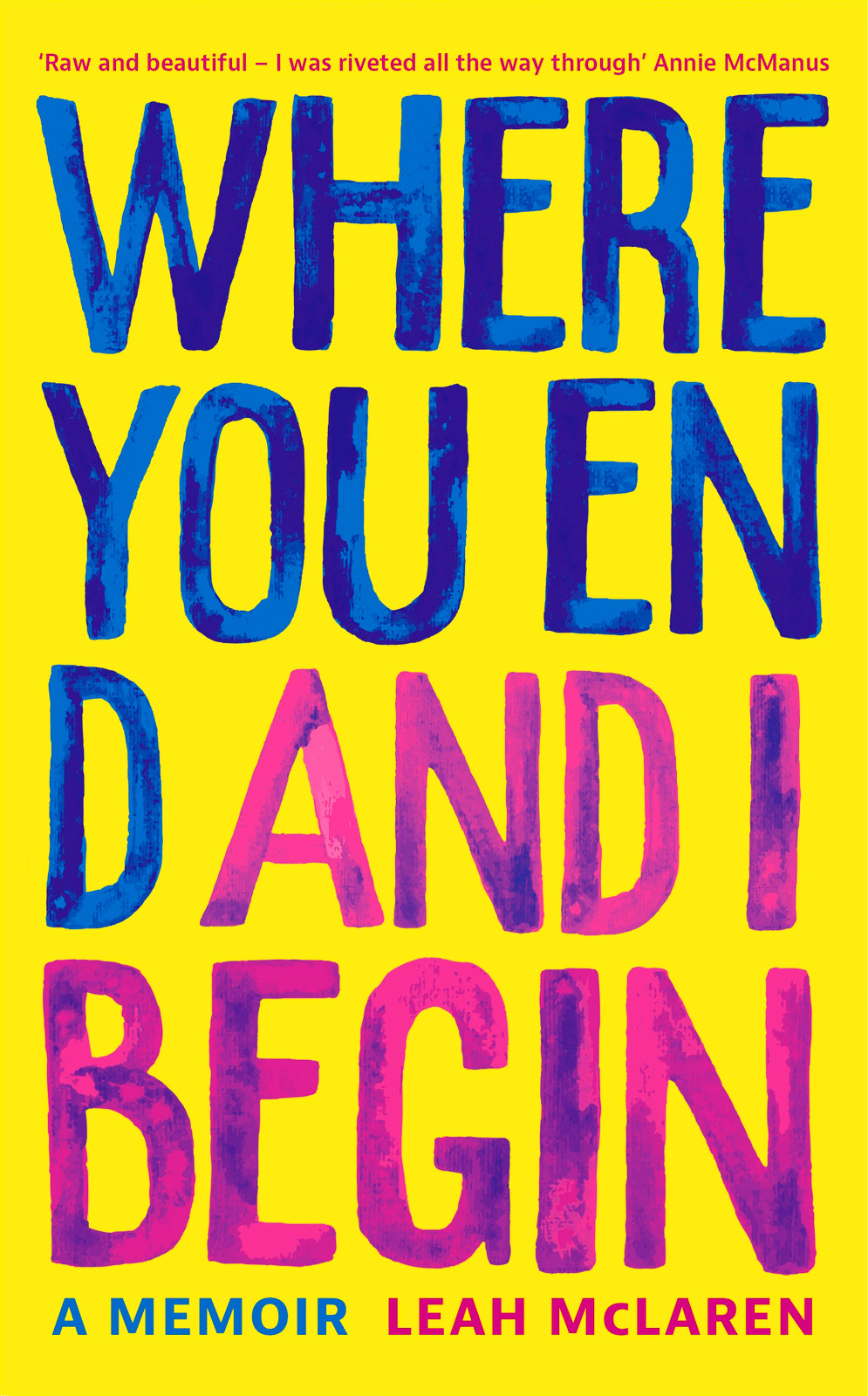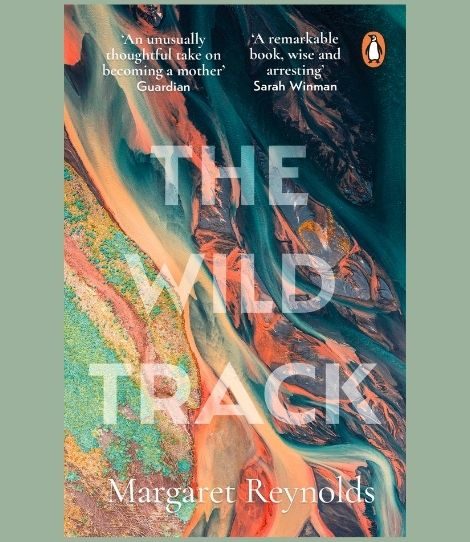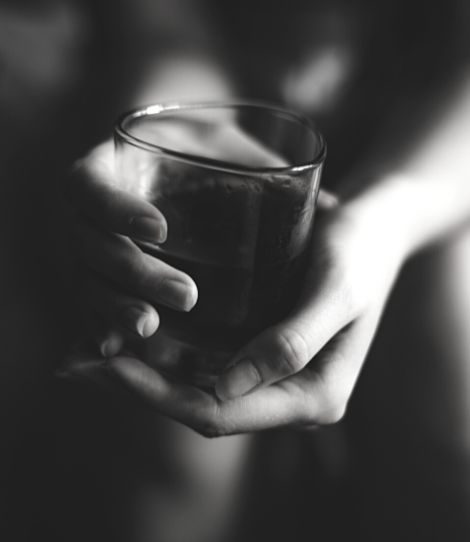“Never trust ambitious people.”
This was something my mother often told me growing up. One of her many truisms, an oft-repeated scrap of advice along with, “when you’re hungry always drink a glass of water first,” or “never leave a wooden spoon to simmer in the pot.” I didn’t think much of it growing up, but in retrospect the ambition thing was curious, especially in light of the facts.

When I was eight and my sister was six my mother cast off her life as an Ontario country housewife in search of a glamorous career as a journalist in the city. Within a couple of years of Mum moving out, Meg and I lived full-time with Dad, who’d also been knocked sideways by the divorce. Dad learned how to cook (badly) and we saw Mum on odd weekends and scraps of holiday – whatever she could juggle with her job. In the chaotic years that followed, Mum lurched from one rental flat, town, city, job and toxic relationship to the next, confiding in me about all of it on the phone or during our increasingly infrequent visits. I missed my mother desperately after she left, but I did not resent her, on the contrary I idolised her for her bravery and singular focus. She wasn’t around that much but still managed to rear me on a steady reading diet of Doris Lessing, Marilyn French and Erica Jong. To me Mum was not a shirker, she was a renegade, a free woman – an urbane and sophisticated “media person.” I saw her as she wanted to be seen, as a feminist role model, and in many ways she was.
At thirteen I followed her to the city by landing myself a place at a selective state-funded academy for the arts. In retrospect both Mum and my Dad (a dutiful and unapologetically conventional small town furniture salesman) were ambivalent about the arrangement but what could they say? I got in! It was my dream to be an actress! So off I went.
Life in the city with Mum was everything I’d hoped for and more. There were no rules or boundaries – as a teenager this suited me better than fine. Mum and I told each other we weren’t really mother and daughter but best friends and roommates – that was the deal. When Mum wasn’t working and I wasn’t at school, we hung out and talked about politics and books. She took me to film festival parties and spent hours confiding in me about her tortured on-off affair as the second string-girlfriend of a wealthy commitment-phobic man. I had no curfew, she never asked about marks or interacted with my teachers at school. I could drink wine and smoke in the house. The fridge was always empty because, as Mum liked to joke, “Why would I buy food when you’d just eat it?” I thought this was hilarious, just like her self-described parenting philosophy of “benign neglect.” I understood that Mum’s jokes were half serious – that was what made them so funny. We both came and went as we pleased. Literally. In my last year of high school she took a job as editor of a magazine in another town, a three hour drive away. This meant I was on my own to sort out final exams and university applications. I was lonely and anxious, I lost a lot of weight and could barely sleep, but I didn’t blame Mum – it was my boyfriend’s fault for breaking up with me. I was proud of her. It was a great job, she was moving up. For all her ambition and work ethic, Mum was also deeply unconventional. She often said she didn’t mind whether or not I chose to go to university at all. “It’s your life,” was another one of her truisms, which dovetailed neatly with the “family motto” she kept tacked to the front of our fridge: COMMITMENT SUCKS THE LIFE RIGHT OUT OF YOU. When I got into McGill with a scholarship she was delighted but also slightly baffled when I said I didn’t want to defer a year and travel the world.
After university I ended up getting an internship at The Globe and Mail, the same paper where, by that time, Mum worked. By my late 20s I was a feature writer with a national column and my own career was soaring; I signed a deal to write my first novel, then a TV deal. Mum and I went out for lunch to celebrate my book – we went Dutch of course, because as she often reminded me, I out-earned her by half.
It was not long after that the first major fault line in our relationship emerged. I will never forget the moment: The memory is vivid and bracing. A bright, cold midweek morning in April 2007. I am sitting at my desk in the newsroom when I get a call from my friend Liz, a producer at The Gill Deacon Show, a popular daytime chat show on CBC.
“Dude!” Liz’s voice was bright, recently caffeinated. “Just read your ma’s piece in Chatelaine. Yowza. So listen, Gill is wondering if you both want to come on the show tomorrow to talk about it.”
“What piece?”
The line goes silent. Liz is one of my best friends. I know her so well, I can actually hear her chewing her lip. I once rescued her from the women’s toilets on the fourth floor of the CBC headquarters, just a few blocks from the Globe newsroom. She thought she was dying of a stroke but it turned out to be an anxiety attack.
“Seriously?” she says. “She really didn’t tell you?”
“Tell me what?” I’m distracted, impatient, mentally rifling through a catalog of edgy, unsubstantiated social trend ideas I’m hoping to cast out at the ten o’clock features meeting. What Liz says next crushes my stomach like an olive entering a press.
“Leah, you need to stop whatever you’re doing and go find a copy of this month’s Chatelaine.”
I amble casually through the Style section, past my mother’s cubicle, where she sits editing a Saturday roundup of new kitchen gadgets. She’s deep in the zone, fingers dancing across the keyboard, bifocals fixed on the screen, chin up, shoulders slumped—a posture that will exacerbate the pain in her scapula which radiates up her neck to the base of her skull. It’s a pain everyone in the newsroom has, to some degree or other, and which my mother treats with two double Scotches a night. (I prefer cold white wine.) She does not look up as I pass. This is normal; we see each other so often we long ago dispensed with greetings at the office.
On the Style editor’s empty desk, I find the latest copy of Chatelaine, then Canada’s highest-circulation magazine (print readership 4.5 million). I thumb through the rhubarb pie recipes, the dress patterns, past the celebrity-fronted ads for perfume and anti-ageing lotions, until I find it: my mother’s byline under the headline give me my life back.
The four-page spread is illustrated with a still from the recently released film The Hours. In the photo, Julianne Moore sits on a bed, dolled up like a blank-eyed 1950s housewife, an aesthetic homage to Sylvia Plath.
“The overwhelming sense of dread I felt while parenting my daughters was no passing affliction. For years, motherhood felt like an affliction.”
That’s the pull quote.
The office carpet tilts beneath my feet; the fluorescent bulbs overhead streak like comets at the edges of my vision. I can’t walk by her desk with the magazine in my hands, so I steady myself against the filing cabinet and begin to read. As I do, a strange thing happens. My mother’s voice, which is never far from my mind, is right there, in my ear, as if she were right there, which of course she is. My eyes lift from the page and fall on the back of her head, about ten feet away, grey roots seeping along her highlighted hairline like the inevitable creep of dawn. A harmless, well-preserved fifty-something woman in a blue cashmere sweater I’d given her as a gift last Christmas.
“What, I wonder, would my life have been like if I’d never embarked on this impossible adventure? Why does the love I feel for my children feel like a prison? How can I reconcile my desire to lay down my life for them with a simultaneous impulse to run for my life? This is the impossible ambivalence of motherhood.”
I turn the page and take in the baby and childhood photos, taken in the house I grew up in, where we’d all lived together as a family before Mum left us. She is smiling, we all are. The happy housewife and stay-home mother with her two adoring children. Except it was all a lie.
“I have never been very good at this mothering thing which requires a degree of selflessness that simply has never been in me. The truth is that I am not the sort of person who should have had children…”
On the opposite page is a photo of the three of us: me, my sister and Mum. In the photo, Mum and I stand abreast in identical black V-necks, looking like older and younger versions of the same person, our pale, fine hair illuminated by the flash, same set jawline and nervous, half-smiling squint. Meg stands adjacent, owning the foreground. My sister, I think, looks entirely herself: head slightly thrown back, wide, toothy grin, jean jacket mis-buttoned – a sign of good fortune. One of her thick dark-blond curls licks my cheek like a Labrador’s tongue. I skim through the article to the end.
“The overwhelming sense of dread I felt while parenting my daughters was no passing affliction. For years motherhood felt like a prison. Because I love them, the realisation that I have let them down again and again is too much to bear. If I had known then what I know now I would not have chosen motherhood and its unbearable love.”
I walk back to my desk, pick up my bag and coat, and walk home through the slush. On the way, I call my boss and leave a message saying I feel sick and will miss the ten o’clock meeting. Liz does not bother to call back to ask if I will go on The Gill Deacon Show. The next day I return to work, where Mum and I greet each other coolly. For days, possibly weeks, we barely speak. There must have been a confrontation but I can’t recall it. What I remember is less emotion than a physical sensation. The dazed humiliation after the sucker punch.
A few years later I moved to London where I eventually married and had children of my own. I don’t regret motherhood like Mum, but I do find it difficult to contain. Maternal love often feels like a force that is simultaneously expanding inside me and swallowing me whole. When my children are with me, quite often I am anxious for them to go. This is how it feels, much of the time, at least to me—a constant state of longing for the next moment or step, the endless incremental nudging. I want them to go to bed or to school or to come to the table, or just to be in a place, any place, that is not the place where I am. My office on a weekday or my bedroom at 4 a.m. And then, when they go, when they stumble away, in the direction of whatever it is I have urged them toward, a chasm opens in my chest. I cannot think, in these moments, why it was I ever wanted my children to leave. Where have they gone? Why have they left me alone? The feeling usually recedes within a minute or two, allowing me to get on with my work, “my life,” as I call it. But other times the void inside my ribcage becomes a whirling centrifuge, one that threatens to pull me apart until the moment I can finally put my hands upon them again, pull them toward me, inhale the citrus-oil smell of their skin, tickle the playground dust from their hair until they run away shrieking, glancing back and daring me to follow.
What I am best at are in-between moments. The sound of my sons playing in the next room while I read in bed. The twitch of their mouths as they mutter in a dream. Catching sight of one or both of them through a window, lost in the intensity of play – that pure unmediated play that growing up is a process of unlearning, then trying to replicate various unsatisfactory ways. I love observing them from a safe distance, their games of indecipherable spy codes and pirate tests of courage. It’s these bewildering, liminal moments in which I love my children best, by which I mean in the present tense, without wariness or uncertainty. I know it’s easy, even a bit lazy, like the sentimental smugness of scrolling through photos of the baby after the baby is finally asleep. But I cannot not resist. These are the shimmering moments in which I cannot fail my children.
My mother was right: commitment does suck the life right out of you. Raising children, loving them, more than anything else, makes the passage of time impossible to ignore. Their relentless desires, the way they conflict with your own, the endless push and tug—this is the drip, drip, drip all of us are trying and failing to ignore.
What murders me are the bits that can’t be saved. The stuff that slips through the colander of life, too diffuse to be photographed, too unwieldy for the page. The dander of us, mixed up and swirling in the half-light of the empty house. A half-chewed apple, bruised and abandoned on the stairs. The headless triceratops who, for the past thirty-eight months, has guarded the back of the boot closet. The coarse skin of this morning’s porridge pot giving way to Fairy soap in the sink. The way Rob drops a passing kiss on my head while I’m treating Batman’s war wound with a collage of plasters. The broken robot dog croaking from the bottom of the toy bin. Frankie eating his raspberries, one by one, off the tip of each finger.
Some days I am able to absorb these things, even luxuriate in them, then at some point, perhaps after too little coffee or too much wine or an inexplicable argument with Rob—or just because it’s ten past three on a December afternoon—I will think: I am impossible to love.
This is when I am most like my mother.
– Leah McLaren
Where You End and I Begin: A Memoir by Leah McLaren is out now from John Murray Press. Subscribe to Leah’s free Substack Juvenescence.
More on family in midlife
View All
Adopting in midlife: It wasn’t what I thought
Margaret Reynolds thought embarking on parenting in midlife would be a personal journey. It was so much more than that…


